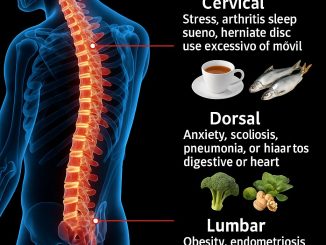Credit card fraud is a growing problem, with the UK alone losing a staggering £556.3 million to credit, debit, and other payment card fraud in 2022. That’s a lot of money! According to finder.com, the average defrauded account suffered a loss of £204, highlighting the serious financial impact on individuals. This widespread problem is exacerbated by the use of weak and easily guessable PIN numbers.
Jake Moore, a global cybersecurity advisor at ESET, explains the dangers of using simple or easily guessable PINs. “Using easy-to-guess passcodes allows attackers to target people more easily,” he told MailOnline. Many individuals opt for PINs related to their personal information, such as birthdays or anniversaries, because they’re easy to remember.

But this practice puts them at significant risk. “People put themselves at risk by having weak passwords and PIN codes and often do not fully understand the threat until they are compromised,” Moore added. He recommends the use of password managers, which not only store but also generate strong, random passcodes, eliminating the reliance on easily remembered numbers.
Based on a study conducted by the data website Information is Beautiful, which analyzed 3.4 million data points from various data breaches, the most commonly used PIN numbers have been identified. Here are the top offenders:
Top 10 Most Common PINs:
- 1234
- 1111
- 0000
- 1212
- 7777
- 1004
- 2000
- 4444
- 2222
- 6969
If your PIN is on this list, it is highly recommended that you change it immediately to something more secure.

Conversely, the study also identified the least common PIN numbers, which are significantly harder for attackers to guess. These include:
Top 10 Least Common PINs:
- 8557
- 8438
- 9539
- 7063
- 6827
- 0859
- 6793
- 0738
- 6835
- 8093
Using one of these PINs, or a similarly unique combination, can greatly enhance your security.

In addition to weak PINs, easily guessable passwords are a major vulnerability. NordPass conducted a survey in 2021, revealing that “123456” topped the list of the most commonly used and weakest passwords. Jonas Karklys, CEO of NordPass, emphasized the importance of strong passwords: “Passwords are the gateway to our digital lives, and with us spending more and more time online, it’s becoming enormously important to take better care of our cybersecurity.”
Here are the top 25 worst passwords identified by NordPass:
Top 25 Worst Passwords:
- 123456
- 123456789
- 12345
- qwerty
- password
- 12345678
- 111111
- 123123
- 1234567890
- 1234567
- qwerty123
- 000000
- 1q2w3e
- aa12345678
- abc123
- password1
- 1234
- qwertyuiop
- 123321
- password123
- 1q2w3e4r5t
- iloveyou
- 654321
- 666666
- 987654321
If your password is on this list, it’s crucial to change it to something more secure. Strong passwords typically include a mix of uppercase and lowercase letters, numbers, and special characters.

Creating a Secure PIN:
- Avoid personal information: Don’t use your birthday, anniversary, or other easily guessable numbers.
- Choose a random combination: Use a mix of numbers, and if possible, include special characters.
- Don’t use sequential numbers: Avoid patterns like 1234 or 9876.
- Memorize your PIN: Don’t write it down or store it on your phone.
Creating a Secure Password:
- Use a password manager: A password manager generates and stores strong, unique passwords for all your online accounts.
- Make it long and complex: Aim for at least 12 characters, including uppercase and lowercase letters, numbers, and symbols.
- Avoid common words: Don’t use words found in a dictionary.
- Don’t reuse passwords: Use a different password for every online account.

Other Security Tips:
- Be cautious of phishing attempts: Never click on links or open attachments from unknown senders.
- Keep your software updated: Regularly update your operating system, web browser, and antivirus software.
- Be aware of your surroundings: Protect your PIN when using ATMs or point-of-sale terminals.
While it might be convenient to use easily remembered PINs and passwords, doing so significantly increases your risk of becoming a victim of cybercrime. Utilizing password managers, creating complex and unique PINs, and maintaining good password hygiene are essential steps in safeguarding your financial and personal information. Don’t wait until it’s too late—take action now to protect yourself from fraud.


